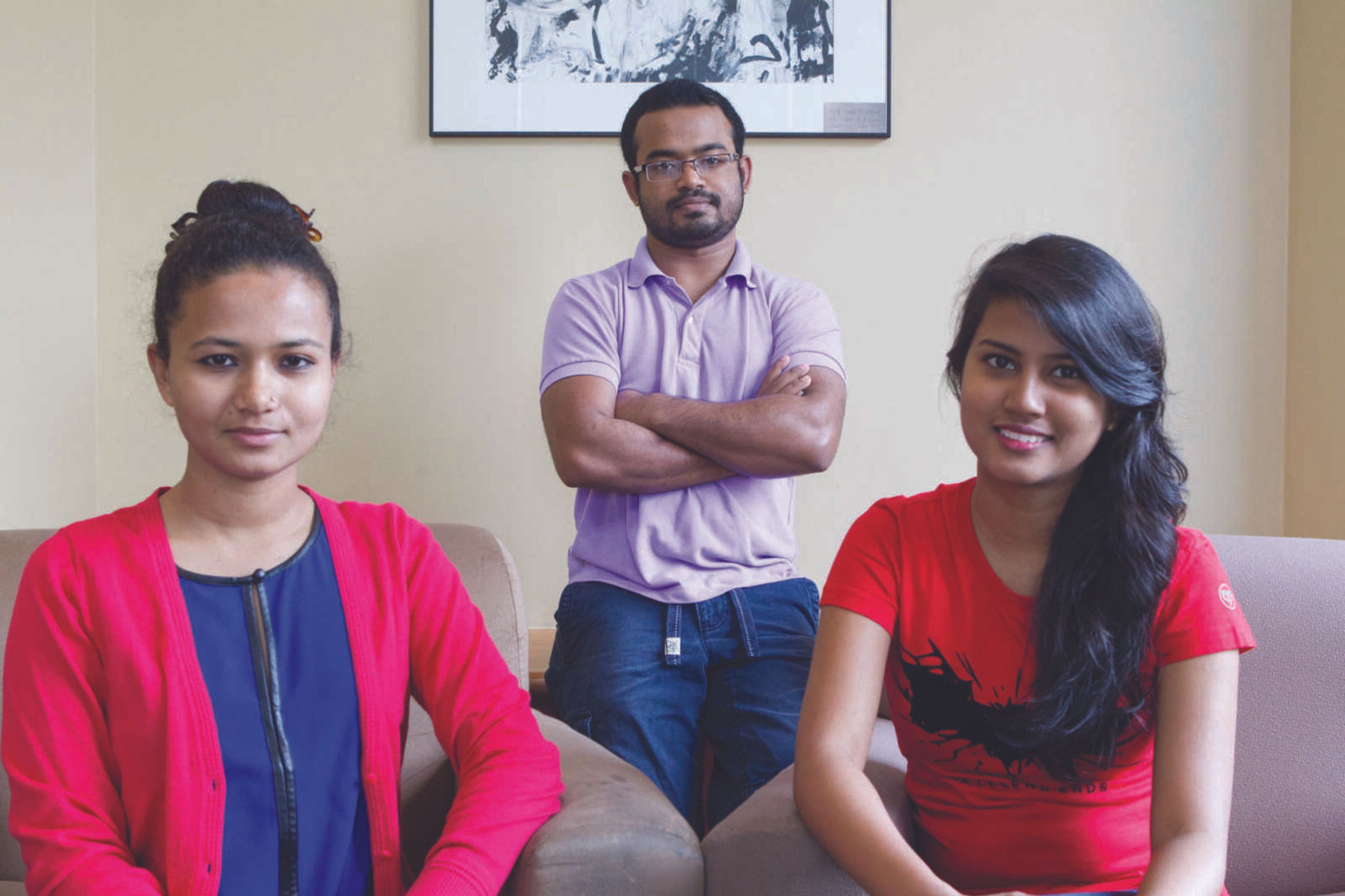There are stories that go untold.
Graduate student Anika Mim had a story she refused to let be forgotten so she decided to work with a Bangladeshi-American director Anindo Atik to create the first documentary ever made on the Battle of Kushtia of 1971, a pivotal massacre episode in the history of Bangladesh, told through the eyes of Dan Coggin, a celebrated journalist who covered the Bangladeshi's war for independence.
"The world will learn of a great American journalist, his journey in Bangladesh and his country's contribution to the freedom struggle of Bangladesh in 1971," Mim said.
Coggin was stationed in Asia in 1964 as an Associated Press representative and later as the foreign correspondent of TIME magazine from 1965 to 1972. He covered events in nearly 40 countries such as the Vietnam War, Middle East turmoils and others. According to an archived TIME article regarding Bangladesh Genocide Research Coggin was "one of the 35 newsmen expelled from Dahka on March 26."
Atik traveled to Bangladesh and stayed for four months to research the war and gather testimonials, some which will be major components of the movie. Mim and Atik had been in contact with Coggin via phone and email discussing the production of the movie but, although close, she never got to meet him.
Mim said that the Bangladesh government was going to recognize Coggin as the nation's Foreign Friend and that he was planning to travel to Bangladesh in November 2011, when two days before his flight he got sick and was admitted into the hospital, where he later fell into a coma.
"The trip never happened so the story was left untold," Mim said. "If he could have made that journey to Bangladesh, maybe the story would have been told with the media coverage, and he could have been in Bangladesh and people could have known about him," Mim said.
Mim was planning to meet Coggin in New York during Thanksgiving break of 2011.
"I went to the hospital to meet him but the doctor didn't allow me because he was in so much critical condition and I waited like two or three days in New York just to meet him, but I didn't get the chance to do that."
Coggin died on Jan. 22, 2012.
Mim said the documentary will tell the story of this forgotten war, the wartime in the city of Kushtia and the journey of Coggin. It will also include stories of families involved, including a man who saw 16 members of his family die in one day.
Mim has sought and found support among her fellow Bangladesh Student Association members at Southeast Missouri State University, including Rukhsar Rzoo, who has a personal connection to the event.
Rzoo said the Liberation War is a common topic discussed among families and she has always known about the war and its consequences. Her grandfather was in the Navy and her father was a freedom fighter, one of the many civilians who fought against the Pakistani and witnessed the massacre.
"Every Independence Day my dad always tells the story of how he got shot and shows his bullet mark," Rzoo said.
Mim said every family lost something in the war and added that her generation is the first and last one to "know everything."
"The people who know about [Coggin], they are in their old days," Mim said. "They don't have the energy and passion to convey this message. The destiny crossed our paths and we got to know about him. I feel now it's our responsibility to convey this message. Otherwise there's no one else to convey it and others won't know what he did and the significance of his work."
The Liberation of Bangladesh was a nine-month long revolutionary war in South Asia where members of the Pakistani military killed approxiamtely three million people, raped 200,000 women and forced millions more to flee their homes, according to an Al Jazeera article from 2010.
"Still we are struggling to get the recognition from the United Nations because they still say it was a civil war, but if you go with the definition of genocide, it falls under the category of genocide," Mim said.
The war broke out on March 26, 1971, between East Pakistan and West Pakistan when the Pakistani Army launched a military operation to "eliminate" the Awami League and its supporters in East Pakistan, according to genocidebangladesh.org. Supporters demanded the Pakistani military allow separation between East and West Pakistan. Bengali politicians and army officers declared Bangladesh's independence causing the Pakistani Army to begin what Mim called "one of the worst wars in modern human history."
"The Battle of Kushtia," a product of Mim's noticeable passion for her country and filmmaking, is budgeted at $43,000 of which $10,000 has been raised and spent. The movie went into production last year but is now at halt because of a lack of funds.
Mim, Rzoo and other members of the Bangladesh Student Association have come together to organize a fundraiser with the goal of raising $10,000.
A fundraising dinner will take place at 5:30 p.m. on May 19 at the University Center Ballroom and will include a fusion of American and Bangladesh as well as a presentation about the movie and Coggin, including a compilation of short stories written by him. There will also be hand stitched covers and other typical Bangladeshi handcrafts available for sale.
Tickets for the fundraiser cost $25-$75 and can be purchased by contacting Anika Mim at tbkushtia@gmail.com or calling to 347-536-4794. To learn more about the movie and Coggin's journey you can also visit facebook.com/thebattleofkushtia.





